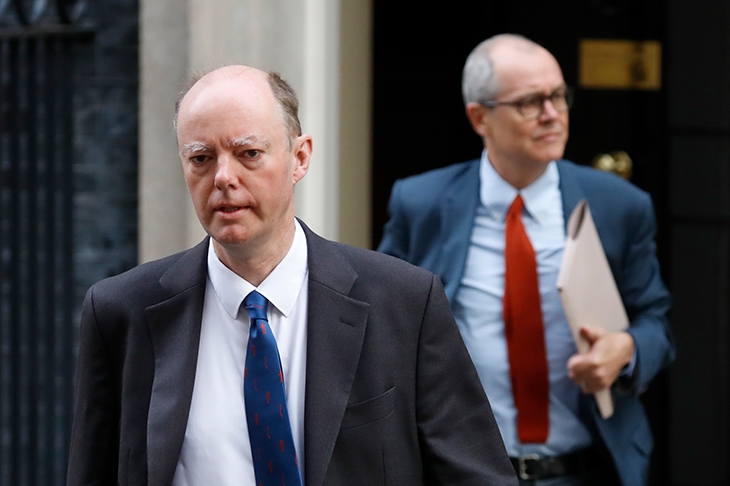At the beginning of the Covid-19 crisis it was easy to see why the Prime Minister was so keen to be seen to ‘follow the science’. He had a pandemic plan, designed by past governments, to be guided by the medical facts and expert judgment. There was to be no role for politics. He held press briefings at which he was flanked by the chief medical officer and chief scientific officer, armed with charts and graphs, making it known that everything he did hinged on their advice.
At first, we were not even allowed to know the identity of the 50 men and women who sit on the Scientific Advisory Group for Emergencies (Sage). Now they have become the most influential group of people in the country, whose decisions shape the lives of millions. Yet their deliberations are often a mystery even to cabinet members. In emergencies, this makes sense, but as a day-to-day model of government, it’s deeply problematic. We end up with London telling Manchester to enter the highest tier of restrictions for reasons no one is able to explain properly. Millions of people are having their liberty curtailed and their human rights abridged on the strength of evidence that is not made public – and on data that may well be corrupt, as previous SAGE data has been shown to be.
The Tier-3 restrictions are being justified on the idea that hospitals in Manchester and Liverpool would otherwise be overrun. But on what evidence? No. 10 says cases may double in a week. Why so? We’re not told. Sir Richard Vallance, the chief scientific officer, offered an insight into SAGE thinking when he outlined a scenario that Covid cases could rise to 50,000 by mid-October. In the event, they were barely at a third of this level.
If Covid data is obscured, policies will never be properly scrutinised, leaving potential for big mistakes
So might northern cities be locked down on the basis of worse-case assumptions like the above? We’re not told, because the basis of the Tier2 and Tier3 decisions is not being disclosed.







Comments
Join the debate for just £1 a month
Be part of the conversation with other Spectator readers by getting your first three months for £3.
UNLOCK ACCESS Just £1 a monthAlready a subscriber? Log in